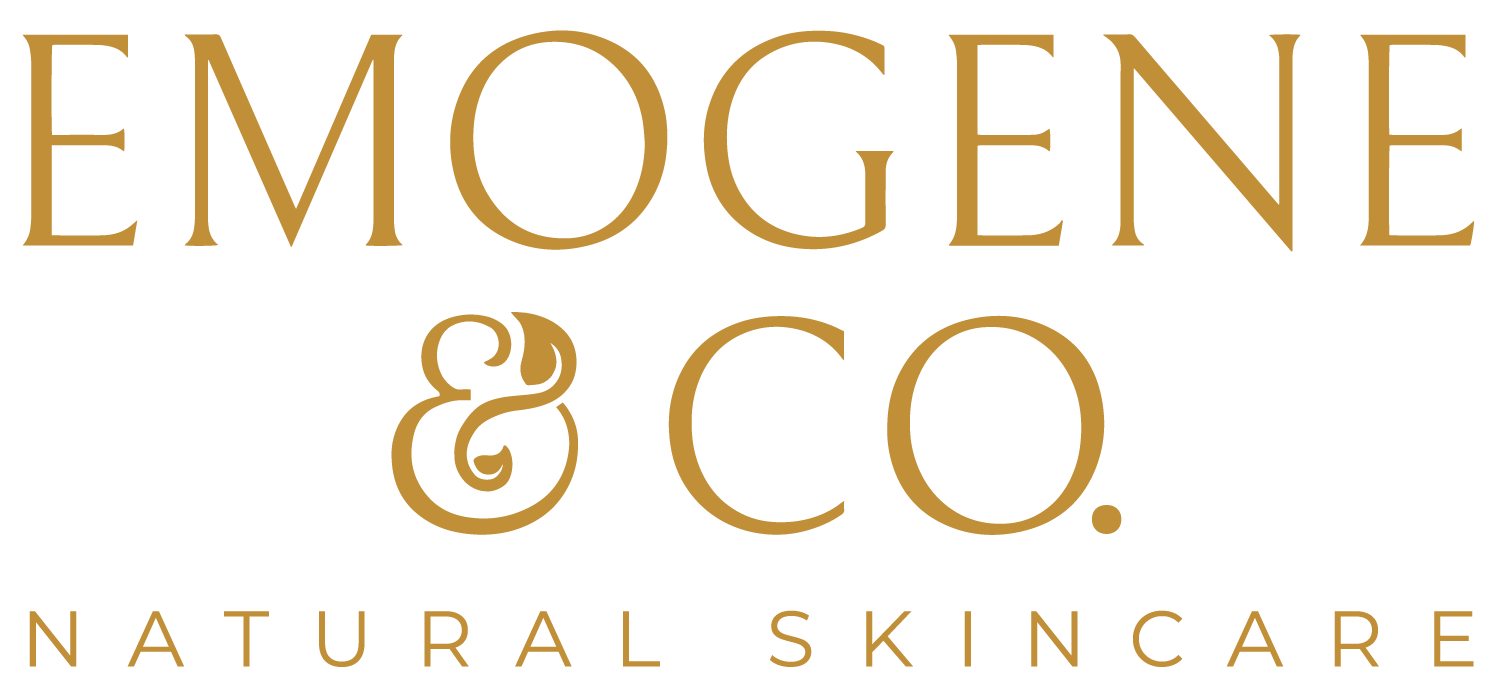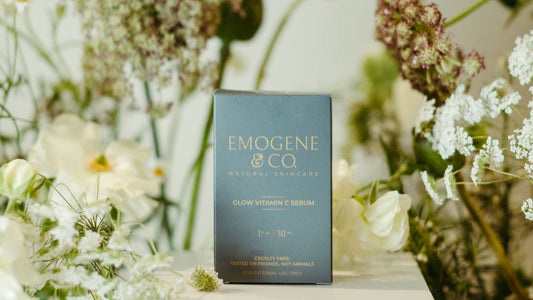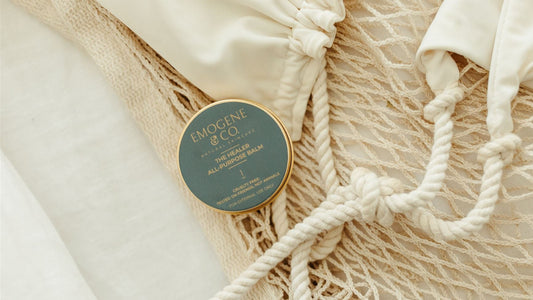As women move through different stages of life, the skin undergoes significant changes, particularly as hormone levels fluctuate and decrease during perimenopause, menopause, and post-menopause. These hormonal shifts can have a noticeable impact on the skin, leading to a variety of concerns such as dryness, loss of elasticity, and even an increase in breakouts. Understanding how these stages affect the skin and what ingredients can help manage the changes is essential for maintaining healthy, glowing skin during this natural transition.
*See the end of this blog for my product recommendations during this stage of life!
It is important to understand the three main stages women go through as they approach and experience menopause:
-
Perimenopause: This is the transition phase that typically starts in a woman’s 40s (but can begin earlier) and can last anywhere from a few months to several years. During this time, the ovaries gradually produce less estrogen, and the body starts to experience hormonal fluctuations, which can result in irregular periods, hot flashes, mood swings, and changes in the skin.
-
Menopause: Menopause officially occurs when a woman hasn’t had a period for 12 consecutive months. This marks the end of the reproductive years, and estrogen levels drop significantly. Symptoms like hot flashes, night sweats, and sleep disturbances can intensify, and the skin is especially vulnerable due to the dramatic drop in hormones.
-
Post-Menopause: This stage begins after menopause has occurred and continues for the rest of a woman’s life. Hormone levels stabilize at a lower level, and many of the symptoms associated with menopause (like hot flashes) may subside, but the skin continues to face challenges due to the lasting effects of reduced estrogen.
How Hormones Affect Your Skin
As estrogen levels decrease throughout perimenopause and menopause, several skin changes can occur. Estrogen is vital for maintaining skin health, as it promotes collagen production, moisture retention, and elasticity. When estrogen levels drop, the skin becomes more susceptible to damage and shows visible signs of aging.
-
Thinning Skin: Estrogen plays a crucial role in collagen production, which helps maintain the skin’s structure and strength. As collagen production decreases, the skin becomes thinner and more fragile, leading to an increase in fine lines and wrinkles.
-
Dryness and Dehydration: Estrogen is also responsible for maintaining the skin’s moisture barrier. As levels of this hormone drop, the skin becomes more prone to dryness, which can cause irritation, flakiness, and sensitivity.
-
Loss of Elasticity: As collagen and elastin fibers break down, the skin’s elasticity diminishes, leading to sagging or drooping, particularly around the jawline, neck, and under the eyes.
-
Increased Sensitivity: The skin may become more sensitive and reactive, with women experiencing redness, irritation, or rosacea flare-ups due to a weakened moisture barrier.
-
Acne and Breakouts: Although many women associate acne with teenage years, it can resurface during perimenopause and menopause. This is often due to fluctuations in progesterone and androgen levels, which can lead to an increase in oil production and clogged pores.
-
Hyperpigmentation: As estrogen declines, melanin production may be affected, leading to an increase in dark spots, uneven skin tone, and pigmentation issues, especially if exposed to the sun.
Skincare Solutions: Ingredients to Look For at Each Stage
Each stage of menopause requires specific skincare ingredients to address the unique concerns associated with hormonal changes. Here’s a breakdown of key ingredients that can help maintain healthy, youthful skin during perimenopause, menopause, and post-menopause:
Perimenopause: The Early Transition
Skin Changes: Mix of dry patches, occasional breakouts, and signs of aging. The skin may also become more sensitive during this stage.
Skincare Ingredients to Focus On:
-
Retinoids (Retinol): Retinoids are powerful vitamin A derivatives that boost collagen production, accelerate cell turnover, and help reduce fine lines and wrinkles. Since perimenopause can lead to early signs of aging, retinol is a great way to keep the skin looking youthful and bright.
-
Hyaluronic Acid: As skin begins to lose moisture, this ingredient helps draw moisture into the skin, keeping it plump and dewy. Consistent moisturization is necessary to keep the skin barrier intact in this stage; moisturizing in the AM and PM is highly recommended.
-
Niacinamide: helps strengthen the skin’s barrier, reduce redness, and improve texture. It also promotes hydration and can help manage breakouts, which some women experience during perimenopause.
-
Vitamin C: This potent antioxidant helps brighten the skin, reduce hyperpigmentation, and protect against environmental damage. It’s a great option for women noticing dark spots or uneven skin tone.
Menopause: The Full Transition
Skin Changes: Estrogen levels take a significant dip, which can result in noticeable dryness, thinning skin, and more pronounced signs of aging.
Skincare Ingredients to Focus On:
-
Peptides: Peptides help stimulate collagen production, improving skin strength, firmness, and elasticity. As collagen naturally decreases during menopause, peptides can assist in maintaining skin structure and resilience.
-
Ceramides: These lipids help repair the skin’s moisture barrier, which becomes weakened during menopause. Ceramides lock in moisture and help combat dryness and irritation.
-
Glycolic Acid: A gentle exfoliant, glycolic acid helps slough off dead skin cells, boosting cell turnover and making the skin look smoother and more radiant. It also helps reduce the appearance of fine lines and uneven skin tone.
-
Squalane: Squalane is an ultra-moisturizing ingredient that provides long-lasting hydration and helps replenish the skin’s lipid barrier. This is especially important for menopausal skin that can become significantly drier.
Post-Menopause: After the Transition
Skin Changes: Fine lines may deepen as collagen continues to break down. Additionally, the skin may continue to experience sensitivity or irritation due to reduced estrogen levels.
Skincare Ingredients to Focus On:
-
Bakuchiol – A gentle, plant-based alternative to retinol with anti-aging benefits.
-
Aloe Vera & Centella Asiatica – Soothe irritation and support skin healing.
-
Ceramides – Restore the skin’s protective barrier and prevent moisture loss.
-
Squalane – A lightweight oil that hydrates without clogging pores.
-
Glycerin – Draws moisture into the skin and helps maintain hydration.
Here is a list of Emogene & Co products that are your best friends during these stages of life:
-
Ritual Foaming Milk Cleanser: A cream based cleanser that will help to keep skin hydrated without the tighter, over-drying experience other cleansers may induce.
-
The Healer All-Purpose Balm: A non-comedogenic moisture occluding barrier moisturizer that nourishes the skin while also providing a ceramide like hydrating effect. The Healer Balm also works incredibly well as the first step in double cleansing here.
-
Prime Niacinamide Facial Serum: Helps with moisture retention and can improve skin texture over time, leaving your skin looking smooth and nourished.
-
Restore Intensive Night Cream: A hydrating moisturizer to use AM and PM with bakuchiol, which is a retinol alternative without the irritating effects of traditional synthetic retinols, but with similar benefits in terms of inducing collagen production.
-
Hydrate Moisture Accelerator: A daily anti-aging serum that locks in moisture and aids in pulling your serums deeper into the skin to boost their activity. It can be used alone or before moisturizer for extra hydration and It is appropriate for all skin types.
-
Recovery Facial Oil: Formulated with plant-based oils rich in oleic fatty acids including Carrot Seed, Marula, and Kukui Nut, all chosen specifically for their properties rich in antioxidants, amino acids and vitamin A. It increases cell turnover, brightens skin, and reduces inflammation while strengthening the skin’s barrier function, and preventing moisture loss due to environmental factors. Mainly used in the Moisture Sandwich method to create a sandwich of hydrating ingredients that are locked in for the best results for thinning, menopausal skin.
-
Resurfacing Enzyme Face Mask: Contains natural pomegranate, pineapple & papaya enzymes to brighten, exfoliate, and even skin tone. These skin-smoothing enzymes gently dissolve and lift keratin proteins within old skin cells, revealing fresh, new, and brighter cells from beneath the surface.
The changes that come with perimenopause, menopause, and post-menopause can have a significant impact on the skin, but with the right approach, you can support your skin through these stages. By focusing on hydration, boosting collagen production, and using the right ingredients for each stage, you can maintain a healthy, radiant complexion. Remember, every woman’s experience is unique, so it’s important to listen to your skin’s needs and adjust your routine accordingly. And don’t hesitate to consult with Dr. Allyson Brennan for personalized recommendations to keep your skin looking and feeling its best.




